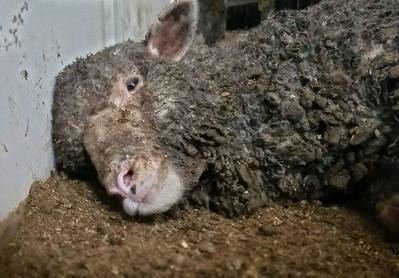Australian Senate Passes Live Sheep Export Ban
The Australian Parliament has now legislated an end date for live sheep export, with the Senate officially passing the Export Control Amendment (Ending Live Sheep Exports by Sea) Bill 2024 on Monday evening.
From 1 May 2028, sheep will no longer be sent on long-haul journeys. The government has committed $107 million over five years for sheep producers and the supply chain to plan for and adjust to the phase out. Early action is being encouraged by the provision of funding now.
Professional veterinarian association Vets Against Live Export (VALE) released a statement saying: “VALE wishes to thank Senator Watt, who stood so firm in the face of relentless attacks, the ALP, the Independent Panel for their tireless work that showed that a supported transition was feasible, all those politicians who bravely voted for the motion (Senators Tyrrell and Pocock particularly) and all the individuals and organizations who worked so hard and for so long to make this day even possible. And thank you to Fazal Ullah, a Pakistani seamen, who courageously showed the world what was happening on Australian live export ships at a time when we were being told that Australia had the world's best export standards.”
Australian Alliance for Animals Strategy Director Dr Bidda Jones, who has been campaigning to end live sheep exports for over two decades, said that witnessing the Australian Parliament vote for the interests of animals was a moment to cherish.
“In 1985, a Senate Select Committee on Animal Welfare reported that, if a decision were to be made on the future of the trade purely on animal welfare grounds, there was enough evidence to stop the trade. Finally, that decision has been made. Exporting sheep live by sea to the Middle East for slaughter is fundamentally inhumane and completely unnecessary, so we are overjoyed to know that it will finally be coming to an end. Today, we have seen the compassion of the Australian people prevail.”
Former live export veterinarian Dr Lynn Simpson said: "Today's decision sees Australian sheep and farmers one step further from the cruelty and suffering that has blighted our agricultural sector. Conditions of unnecessary and unacceptable pain and suffering caused repeatedly by the export of live sheep by sea now has an official end date. As a developed nation we can move away from this draconian cruelty and transition to 100% pre stunned processing in Australia. We can supply chilled and frozen meat to international markets without the stress, fatigue, fear and risks involved with carrying live sheep by sea for weeks on end.
"This is a great day for sheep and anyone who truly cares about the welfare of Australian sheep."
The Australian Livestock Exporters’ Council said that July 1, 2024, will forever be marked as a black day for Australian agriculture. CEO Mark Harvey said the debate in the Senate was extremely hard to watch: “The most galling part of all, was the patronizing insistence from government senators that this policy presented an ‘opportunity’ for Western Australian sheep farmers and our trading partners.”
This government showed they simply do not care about Western Australian agriculture, he said. “The sector is mobilized, united and furious.”
Australia's lamb and mutton exports were worth $4.5 billion in 2022-23 whereas live sheep exports by sea were less than $77 million in 2022-23, less than 0.1% of Australia's estimated agricultural production in that year.
Australia’s live sheep exports have shrunk by $338 million over the past 20 years, and its sheepmeat exports have grown by over 300% over that same period, with exports to the North Africa and Middle East region more than tripling in value over this period.














